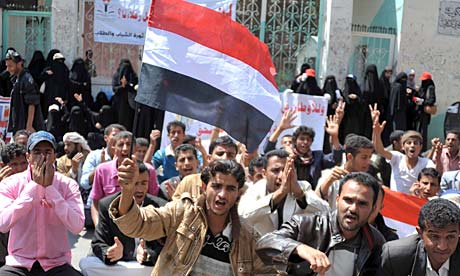By Zach Waksman
Impunity Watch Reporter, Middle East
UNITED NATIONS – Palestinian Authority President Mahmoud Abbas created the potential for chaos within the United Nations Monday, announcing that he would submit a membership application to the Security Council after addressing the General Assembly on Friday. The move comes as what Abbas considers a last-ditch effort to achieve recognition as a separate state. Negotiations with Israel have ground to a halt, and efforts to restart them have failed.
Since 2002, a group of diplomats from the United States, Russia, the UN, and the European Union, known as the Quartet, have been attempting to guide negotiations between Israel and the representatives of the Palestinian people. The last attempts at negotiation broke down a year ago when Israeli Prime Minister Benjamin Netanyahu refused to extend a partial freeze on illegal settlement building on occupied Palestinian land. Israel insists that before negotiations can resume, any new resolutions would have to include a requirement that it be recognized as a “Jewish state.”
Netanyahu, who plans to address the General Assembly prior to the application’s submission, considered Abbas’s decision unilateral in nature. He still appeared willing to resume negotiations.
“When the Palestinian Authority abandons these futile and unilateral measures at the U.N., it will find Israel to be a genuine partner for direct peace negotiations,” he said. “I call on the PA chair to open direct negotiations in New York, that will continue in Jerusalem and Ramallah.”
Abbas was also agreeable to meeting in New York, but not to resume negotiations. “I am ready to meet any Israeli official at any time he wants, but to meet only for meeting, I think it’s useless,” he told Fox News.
Both the United States and Israel oppose granting Palestine full membership in the United Nations because they believe only negotiation could reach a true solution. The Israeli newspaper Ha’aretz reported that Palestine has secured six or seven affirmative votes from the Security Council. For the membership vote to succeed, Palestine needs an affirmative vote from nine out of the 15 members of the Security Council, and no veto from a permanent member. The United States, a permanent member, has vowed to use its veto power should the need arise, but doing so would paint the U.S. as the country that single-handedly ended Palestine’s efforts.
Former British Prime Minister Tony Blair, an envoy of the Quartet, attempted to frame the issue while speaking with reporters on Sunday.
“The Palestinians are here at the UN now, so the question is … can people find a way that enables the Palestinians to take a significant step forward to statehood at the same time as not ending up in a situation where the UN replaces negotiations?”
The answer seems murky. Blair told ABC that the Quartet was trying to put together a document to serve as framework for future negotiations and persuade Abbas not to make his application. To Palestinian official Nabil Shaath, the document had minimal value. He told journalists that when he saw the proposal, “I gulped. This was the statement that was supposed to persuade President Abbas not to go? Mr. Blair doesn’t sound like a neutral interlocutor. He sounds like an Israeli diplomat sometimes.”
Any further negotiation seems unlikely at this point, but a successful Security Council vote, even with a U.S. veto, will have symbolic value to the Palestinian cause by giving legitimacy to the organization’s leadership. Abbas seemed optimistic and referred to a speech made by U.S. President Barack Obama last year in which Obama said he hoped for Palestine to become a member of the U.N. in 2011.
During his interview, he spoke directly to the U.S. President. “You promised me a state by September 2011,” Abbas said. “I hope you will deliver.”
For more information, please see:
Ha’artetz — ‘Palestinians need just two more Security Council votes in bid for statehood’ — 20 September 2011
Jerusalem Post — No compromise on ‘Jewish’ state, say Israeli officials — 20 September 2011
Ma’an News Agency — Abbas ‘willing to meet Netanyahu’ — 20 September 2011
BBC — Israel offers talks with Palestine over UN bid — 19 September 2011
Jerusalem Post — Quartet meets in New York to avert Palestinian UN crisis — 19 September 2011
New York Times — Diplomats Scramble as Palestinians Plan to Apply for U.N. Membership on Friday — 19 September 2011
New York Times — Palestinians See U.N. Bid as Their Most Viable Option — 17 September 2011



